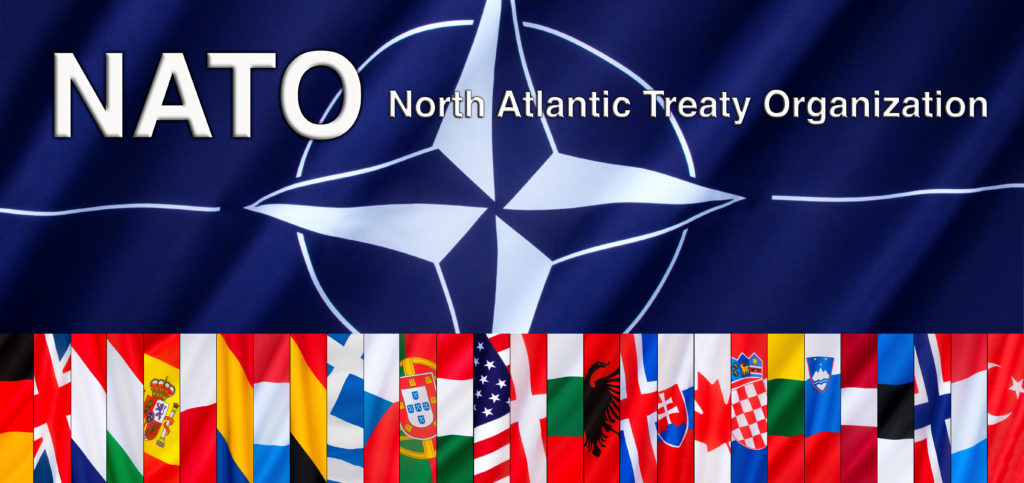NATO’s Secretary-General said he foresees a “real risk of new armed conflict” in Europe after four hours of talks with Russia produced little common ground on broad security guidelines, but the two sides appeared willing to give diplomacy a further chance on specific issues.
And the United States made plain it was up to Moscow to determine – and make clear – whether it intended to engage in serious diplomacy.
The talks in Brussels were the first meeting of any sort for more than two years within the Russia-NATO council – and the second stop in a week of discussions stretching across Europe on Moscow’s demands for the West to provide “security guarantees” as it deploys tens of thousands of troops near Ukraine’s borders.
Those demands focus on securing a pledge that NATO will make no further eastward expansion, that NATO membership will not be offered to ex-Soviet Ukraine and Georgia and that deployments will be halted or rolled back in those eastern European states that joined the Alliance in the mid-1990s.
Western negotiators have already made clear that these fundamental principles are non-starters – that no one can dictate political or diplomatic orientation to another country and that the era of dividing Europe into spheres of influence has long passed. And no decision on Europe, or any specific European country, will be taken in their absence.
Big gaps to bridge
NATO’s Secretary-General Jens Stoltenberg laid bare a measure of frustration at the apparent failure to bridge gaps in understanding. “Significant differences” remained, he said.
“There is a real risk of a new armed conflict in Europe,” Stoltenberg said at the close of the latest round of talks. “We are clear-eyed. So we also conveyed a message to Russia that if they use military force there will be severe consequences; economic sanctions; political sanctions.”
The top U.S. negotiator, Deputy Secretary of State Wendy Sherman, said it was up to Russia to make clear what it wanted from talks.
“Russia, most of all, will have to decide whether they really care about security, in which case they should engage, or whether this was all a pretext,” she said. “And they may not even know yet.”
The meetings in rapid succession in Europe this week, she said, underscored that NATO was willing to engage in a discussion and not “drag its feet” as Moscow has suggested.
“It is Russia that has to make a stark choice: de-escalation and diplomacy or confrontation and consequences,” she said.
Sherman said NATO negotiators had set down areas “where we can work together and make real progress,” including on arms control, missile deployments, risk reduction and greater transparency in military exercises.
Russia formally proposed concluding two security pacts in December and Putin has for weeks insisted that it was NATO that had boosted tension by shifting the Alliance and its weaponry ever closer to its border.
Moscow had a right to ensure its own security and a failure to agree to its demands would prompt Russia to devise an appropriate military response.
Russian negotiators made no formal agreement for further talks on those issues, but did not reject them either. On Monday in Geneva, the first stop on the week-long circuit of talks, Russia said it had no intention of “escalating” the situation in Ukraine and would stage no new intrusion.
Putin has said Russia has every right to deploy its troops anywhere it wished on its own territory – the current deployment was linked to exercises in southern Russia, he said.
He and U.S. President Joe Biden have held two meetings in the past month by video link, talks described by aides as substantive and preparing the ground for this week’s discussions.
But the last 50-minute encounter on 30th December was also punctuated by threats issued by both sides.
Russia annexed Ukraine’s Crimea peninsula in 2014 after mass demonstrations in Kyiv led to Ukraine’s Russia-friendly president fleeing the country and Russian proxies seized large chunks of territory in eastern Ukraine, sparking a conflict in which more than 13,000 have died.
Ukraine’s current president, Volodymyr Zelensky, came to power pledging to clinch a deal with Moscow on securing the return of lost territory, but now says only NATO membership can solve the country’s problems.
Moscow’s right to security
Russia formally proposed concluding two security pacts in December and Putin has for weeks insisted that it was NATO that had boosted tension by shifting the Alliance and its weaponry ever closer to its border.
Moscow had a right to ensure its own security and a failure to agree to its demands would prompt Russia to devise an appropriate military response.
Russian Deputy Foreign Minister Alexander Grushko told reporters in Brussels that Moscow stood by its demand for NATO to end its “open door” policy of offering membership to all. Membership for Ukraine and the possible deployment of weaponry there is seen by Russia as a serious security threat.
“The freedom to choose ways of ensuring one’s security mustn’t be implemented in a way that infringes the legitimate security interests of others,” Grushko told a news conference.
The meeting, Grushko said, exposed a “great amount of divergence on fundamental questions”, but he acknowledged it was “rather honest, direct, deep and comprehensive. This was a heart-to-heart discussion. I think we were able to communicate to the members of the alliance that the situation is becoming unbearable…We support peaceful solutions based on balance.”
The third meeting in this week’s series takes place on Thursday in Vienna within the context of the 57-member Organisation for Security and Cooperation in Europe, one of the continent’s most prominent security bodies.

